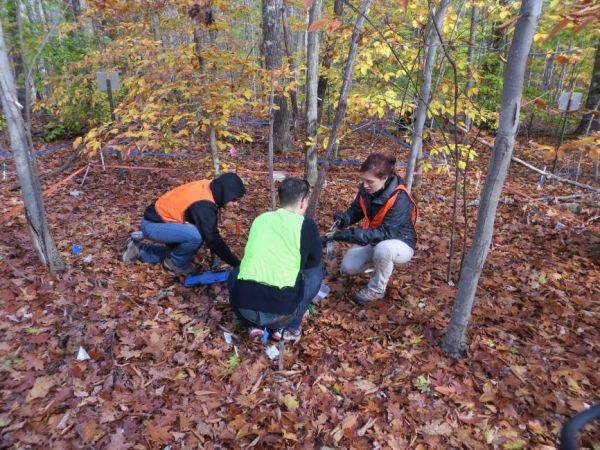In a new national effort, scientists led by Jeff Blanchard, biology, have received a two-year, renewable resource grant from the Department of Energy (DOE) to apply – for the first time – new genomics and omics-related techniques to microbial communities at 15 to 20 established NSF research sites across the United States, Hawaii and Puerto Rico.
The new soil data will be integrated with older soil sample data to assess how these communities are responding over time to climate change and their role in respiring carbon dioxide from soil, which is the major repository of terrestrial carbon, Blanchard says.
The work will take advantage of his lab’s soil-warming and microbe population experiments at Harvard Forest in Petersham and the National Science Foundation’s (NSF) National Ecological Observatory Network (NEON). Researchers will use advanced -omics capabilities at the DOE’s Joint Genome Institute (JGI) and its Environmental Molecular Sciences Laboratory (EMSL). “We are fortunate to be able to work with top-notch laboratory and computational scientists at JGI and EMSL,” Blanchard says.
Continue reading at University of Massachusetts - Amherst.
Image via Blanchard Lab.


